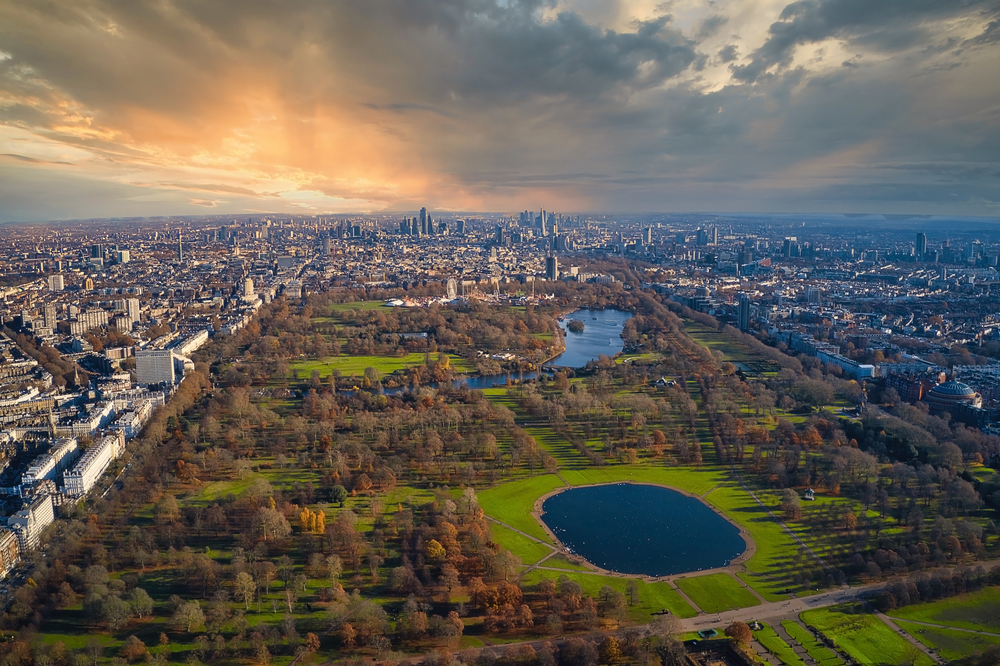The Up-and-Coming Theatre Shows to Watch Out for in London in 2025
For centuries, London has been the beating heart of the theatre world. From Shakespeare’s Globe to the grandeur of the West End, the city’s stages have shaped the evolution of drama. It is where Olivier, Gielgud, and Dench became legends, where experimental works thrive alongside blockbuster musicals. What makes London’s theatre scene so spectacular is its willingness to take risks and its ability to push beyond spectacle and tap into something undeniably human.
This year’s most anticipated productions challenge, disrupt, and reimagine. From contemporary autopsies of modern relationships to a hip-hop reimagining of A Christmas Carol, the stage is set for a year that refuses to be predictable.
Playwrights and directors are leaning into risk, crafting productions that blur the line between reality and performance, intimacy and spectacle. Audiences can expect Chekhov stripped of sentimentality, a folk musical that transforms grief into something luminous, and a psychological thriller that turns the theatre itself into a haunted space. These are the five must-see productions that will define the year.

"Unicorn" by Mike Bartlett (Garrick Theatre, February 4 – April 19)
Mike Bartlett is at it again, slicing open modern life with his particular brand of forensic precision. Unicorn, his latest, is an autopsy of a marriage, although it does not begin that way. It begins with Polly and Nick, who have built a life that looks, from the outside, complete. A house in London, successful careers, the weight of time thick between them. But something is wrong, something they cannot name.
Bartlett, whose King Charles III turned the stiff formalities of the British monarchy into Shakespearean drama, knows how to expose the fractures in our illusions. His language is clean, exacting. His ear for dialogue is surgical. And so Polly and Nick, played by Nicola Walker and Stephen Mangan, will move through the play like sleepwalkers in a well-appointed dream, unable to admit the truth of their own discontent.
James Macdonald directs, and it is likely that the stage will be a domestic interior of some kind, the sort of warm, well-lit space where conversations happen over wine, where the accumulated weight of years begins to press in. Bartlett understands that the quietest disasters are often the most devastating. This will not be a play of great pronouncements or violent disruptions. It will be something more unsettling: the slow realisation that you have built a life that no longer belongs to you.
"Inside No. 9: Stage/Fright" (Wyndham’s Theatre, January 16 – April 5)
There is something uniquely British about Inside No. 9, the cult anthology series by Steve Pemberton and Reece Shearsmith. It is dark, funny, self-aware. It moves easily between horror and comedy and then, suddenly, something close to tragedy. The show has always understood that the scariest stories are the ones that begin with familiarity: ordinary rooms, ordinary people, just before the terrible thing happens.
Now, Pemberton and Shearsmith are taking that sensibility to the stage with Inside No. 9: Stage/Fright, a theatrical experience that promises to be as disquieting as the best of their television work. Little is known about the plot, which is exactly as it should be. A locked room, perhaps. A stage set that begins to shift under its own weight. An audience unsure of what is real and what is not.
"The Seagull" (Barbican Theatre, February 26 – April 5)
Chekhov never believed he was writing tragedies. His plays, he insisted, were comedies. They were filled with people who talked too much, who declared their intentions, and then did nothing. They were, in other words, like real life. This production of The Seagull, directed by Thomas Ostermeier, will take Chekhov at his word. It will strip away the sepia tones, the reverence, the overly studied silences that have been allowed to settle over his work like dust.
Cate Blanchett returns to the stage after five years to play Arkadina, the grand and grasping actress who cannot bear to fade from view. Emma Corrin will be Nina, the hopeful young woman who throws herself into the pursuit of fame and love, not understanding yet what both will cost. Kodi Smit-McPhee will take on the role of Konstantin, the artist desperate for recognition, desperate to be something new.
The Barbican is an appropriate home for this production – its brutalist architecture, its sense of space, and isolation will underscore the play’s central theme: the way people exist next to one another, never quite touching, never quite saying what they mean. Ostermeier’s The Seagull will not be polite. It will not be still. It will remind us that Chekhov’s characters are not icons but people and that their longing is still our own.
"Ebony Scrooge" (Sadler’s Wells East, December 2025)
Charles Dickens' A Christmas Carol has been reinterpreted more times than can be counted. There have been straightforward adaptations, Broadway musicals, and modern retellings set in corporate boardrooms. There was even a version in which Scrooge was played by a talking duck. But there has never been anything quite like Ebony Scrooge, a hip-hop dance theatre production that promises to shake the dust off the story once and for all.
Directed by Dannielle “Rhimes” LeCointe and produced by ZooNation: The Kate Prince Company, Ebony Scrooge will not be set in Victorian London. Instead, it will follow a high-powered fashion designer who has buried her past, her culture, and the people who once knew her. The ghosts will come, of course. But this time, they will move differently. They will be danced into being, their messages delivered through footwork and rhythm, through bodies that insist on telling the truth.
Michael ‘Mikey J’ Asante, known for his work with Boy Blue, provides the music, which means it will not be background noise. It will be alive, shaping the story as much as the choreography. The newly opened Sadler’s Wells East is an ideal venue, a place that exists to push dance into new spaces new forms.
"King of Pangea" (King’s Head Theatre, June 7 – July 6)
Some stories begin in places that are entirely real, and some begin in places that exist only in the mind. King of Pangea, a new folk musical by Martin Storrow, falls into the second category. It is a story about grief, about the spaces people create for themselves when the real world becomes too much to bear.
Richard Israel directs, and he is known for his ability to find the quiet truth in stories that could so easily become sentimental. King of Pangea is a folk musical, which means the music will be stripped-down intimate. A guitar, maybe a fiddle, harmonies that feel like old lullabies. The King’s Head Theatre is a small space, a place where there will be no distance between audience and performer. It will not be possible to watch this play from a safe remove. It will demand something more.
London’s theatre scene in 2025 will be restless. It will not be content to stage the same stories in the same way. Unicorn will dissect the quiet unravelling of modern marriage. Inside No. 9: Stage/Fright will turn the theatre itself into something unreliable. The Seagull will remind us that Chekhov is still urgent, still human. Ebony Scrooge will reinvent a story we thought we knew. King of Pangea will show us that sometimes the only way to move forward is to first get lost. Theatre, at its best, has never been about comfort. London theatre, in 2025, will not be interested in making anyone comfortable.



